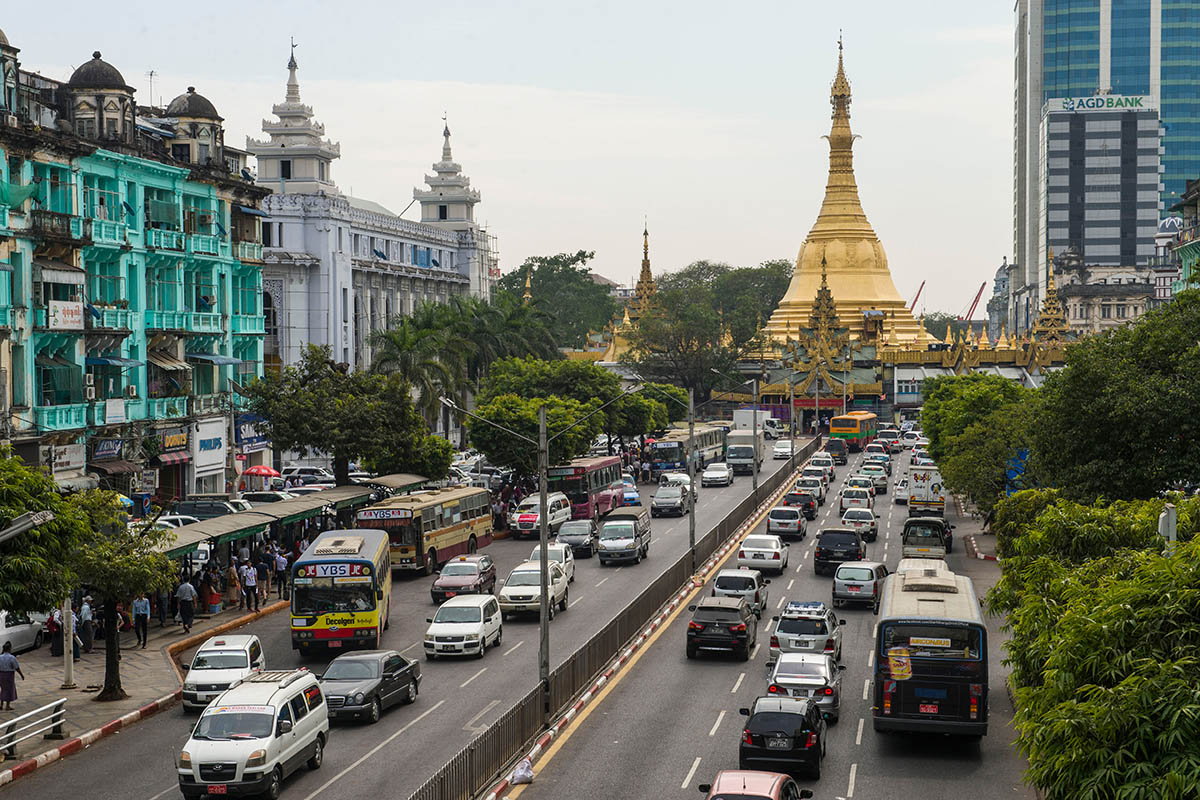As the U.S. and Europe grow increasingly outraged over the Rohingya refugee crisis in Myanmar, Asian businesses are continuing to invest.
Bangkok-based construction company TTCL Pcl is one of the latest examples, targeting the first half of next year to complete a funding plan and shareholder structure for a planned three billion dollar coal-fired power plant in Kayin state bordering Thailand. The U.S. and the United Nations have described Myanmar’s treatment of Rohingya Muslims as “ethnic cleansing.”
“We’re aware of the internal problems in Myanmar,” TTCL Chief Financial Officer Gobchai Tanasugarn said in an interview in Bangkok on 21 November. “Still, some institutions from Thailand and export credit agencies are keen to give financial support.”
The international response to a crisis that has seen more than 600,000 Rohingya flee into Bangladesh is highlighting the enduring schism between how Asia and the West perceive Myanmar. While more U.S. and European companies have sought to establish a presence since the generals released Aung San Suu Kyi from house arrest in 2010, Asian businesses still dominate.
China in particular has led the way, investing 18.1 billion dollars in Myanmar since 2010. That compares with 3.9 billion dollars for the European Union -- 63 percent of which came from the UK -- and 133 million dollars for the U.S., almost all of which has come this year after sanctions were fully lifted. China invested 841.5 million dollars just from April to October, according to government statistics.
China has also been more proactive than the U.S. or Europe in seeking a resolution to the refugee crisis, with Foreign Minister Wang Yi shuttling between Myanmar and Bangladesh this month to help find a solution. They agreed last week to start repatriation of refugees within two months.
While it’s unclear if the agreement will work in practice, it shows how China is becoming more active in resolving disputes abroad, according to Francesco Mancini, visiting associate professor at the National University of Singapore’s Lee Kuan Yew School of Public Policy.
‘Scolding’
“There is a pattern here, wherever they have investments they get involved in diplomatic mediation, and that’s the case in Myanmar,” he said. “The West doesn’t understand how to engage in this part of the world. It’s not helpful to just go in and start scolding, particularly in Myanmar, which has been used to hearing this for decades.”
Suu Kyi, a Nobel laureate and former political prisoner, has come under attack among human-rights advocates in the U.S. and Europe who accuse her of failing to do more to protect the Rohingya. At a press conference with Wang earlier this month, Suu Kyi said China and Myanmar are “friends with the same values.”
While the Rohingya crisis could affect development finance and investor sentiment, so far the direct economic impact seems largely localized, the International Monetary Fund said 17 November. The IMF predicted a rebound in economic growth to 6.7 percent in 2017-2018.
“Ethical and commercial investment in Myanmar are one and the same if you are a company with a reputation to protect whether you are Asian or otherwise,” said Steve Wilford, senior partner for Asia Pacific at specialist risk consultancy Control Risks. “The last two major reputational risk assessments we did in Myanmar were for a Malaysian and a Saudi firm.”
Whiskey, Solar Power
Myanmar’s growth opportunities continue to lure foreign companies. Some recent examples from Asia include:
A Thai Beverage Pcl subsidiary acquiring a 75 percent stake in the makers of Myanmar’s leading whisky brand for about 742 million dollars. The Philippines’ Basic Energy Corp saying it would use internal cash for a possible solar power venture in Myanmar Japan’s Kajima Corp pursuing a 45 billion yen (405 million dollar) development in Yangon, according to a Nikkei report.
Myanmar’s top nine trading partners last year were all from Asia, with the U.S. coming in 10th behind Vietnam. Thailand is the country’s second-largest trading partner, a large chunk of which comes from natural gas imports from Myanmar.
Shares in Thailand’s TTCL jumped almost 26 percent on Oct. 27, the day it announced a joint venture for the 1,280 megawatt coal plant with the Kayin state government.
Once operating at full capacity in 2024, the power plant would help TTCL’s revenue climb to as much as 30 billion baht (919 million dollars) that year, Gobchai said. Sales last year were 20 billion baht, declining 7 percent from 2015.
The coal project is awaiting approval from Myanmar’s electricity ministry, but TTCL is already looking ahead. Gobchai said it may in the next three years consider building two gas-fired power plants in the country, with a combined capacity of 500 megawatts, adding to one it operates to supply electricity to Yangon.
In the energy sector, "investment opportunities in Myanmar are enormous due to a power supply shortage," Gobchai said.
Long term, for any company trying to crack a frontier market, the key is always commitment, said Enrico Cesenni, chief executive officer of Myanmar Strategic Holdings Ltd., a foreign-owned operator and investor in Myanmar with offices in Yangon and Singapore.
“Like any emerging economy, Myanmar is going to experience shocks and investors need to take a long-term view in order to unlock value,” Cesenni said in an email. – Bloomberg
Recommended stories:
